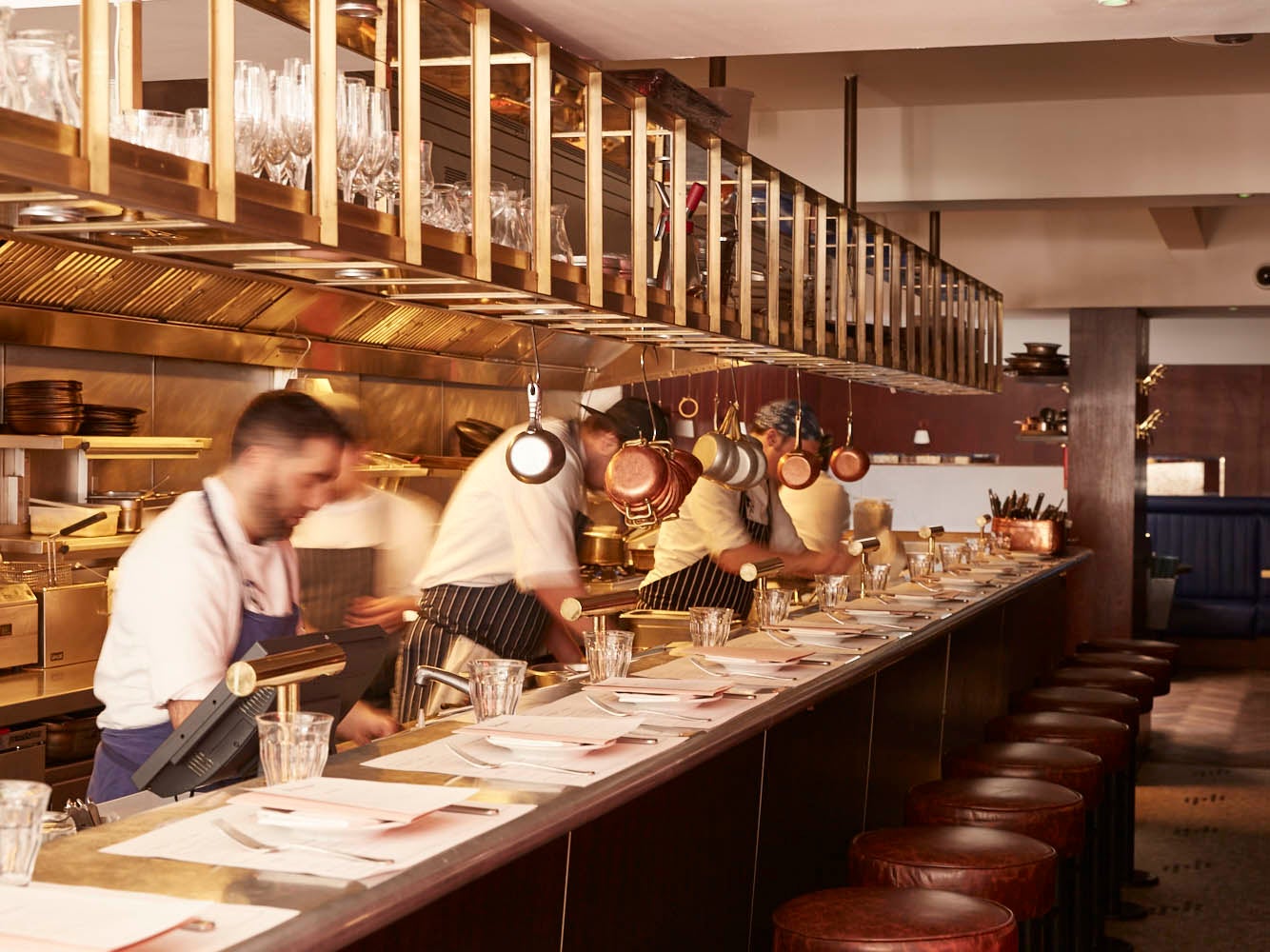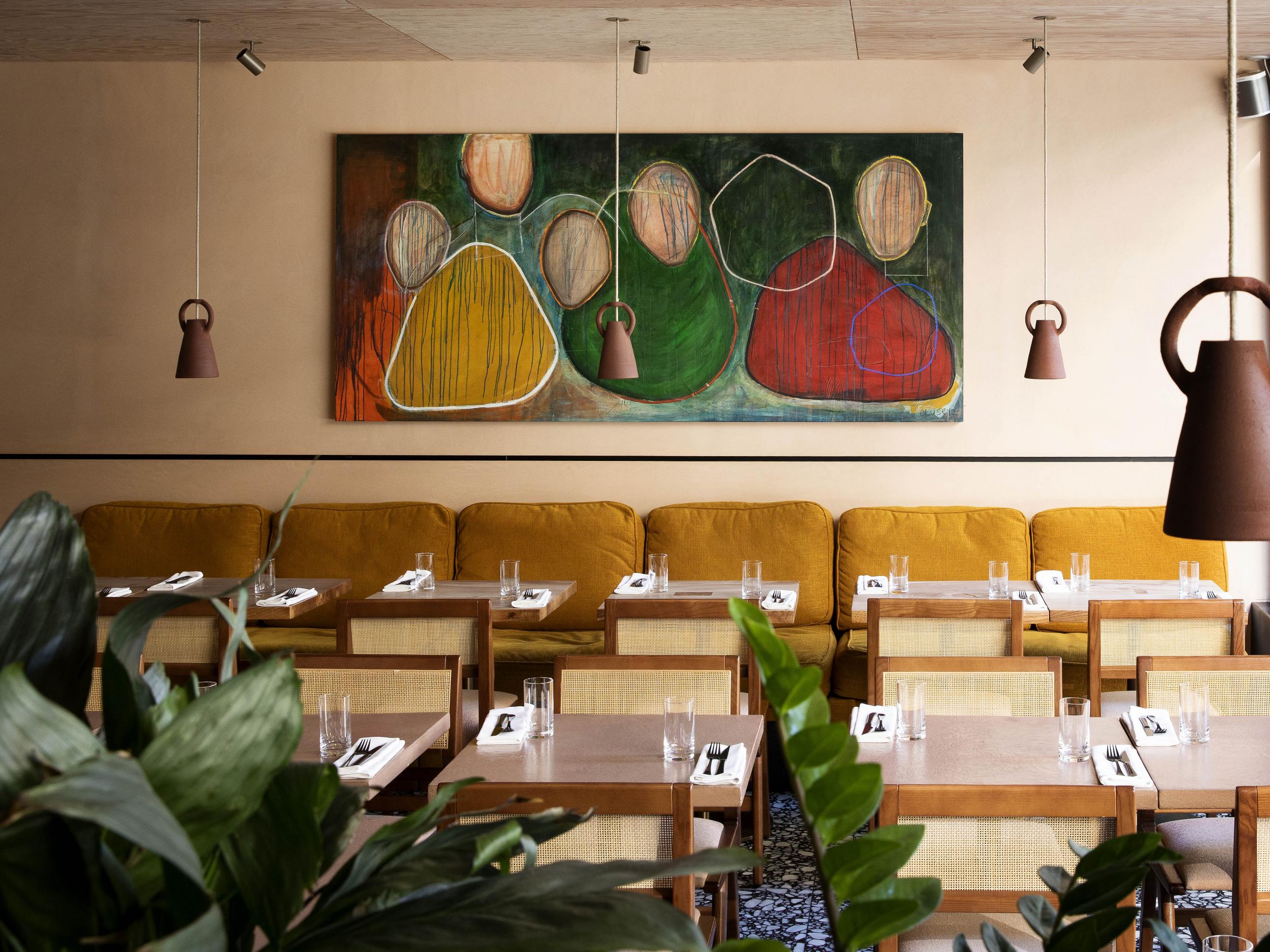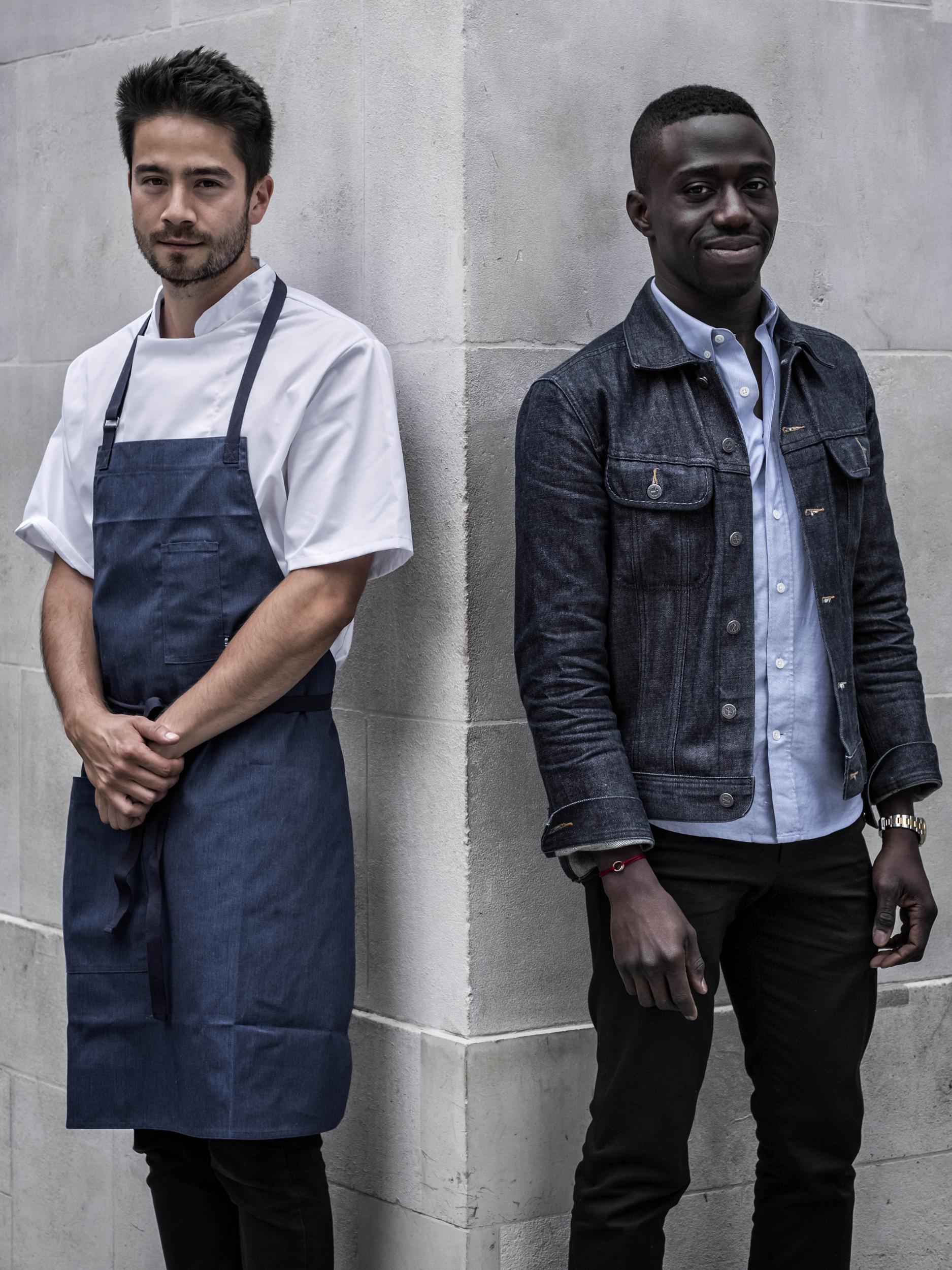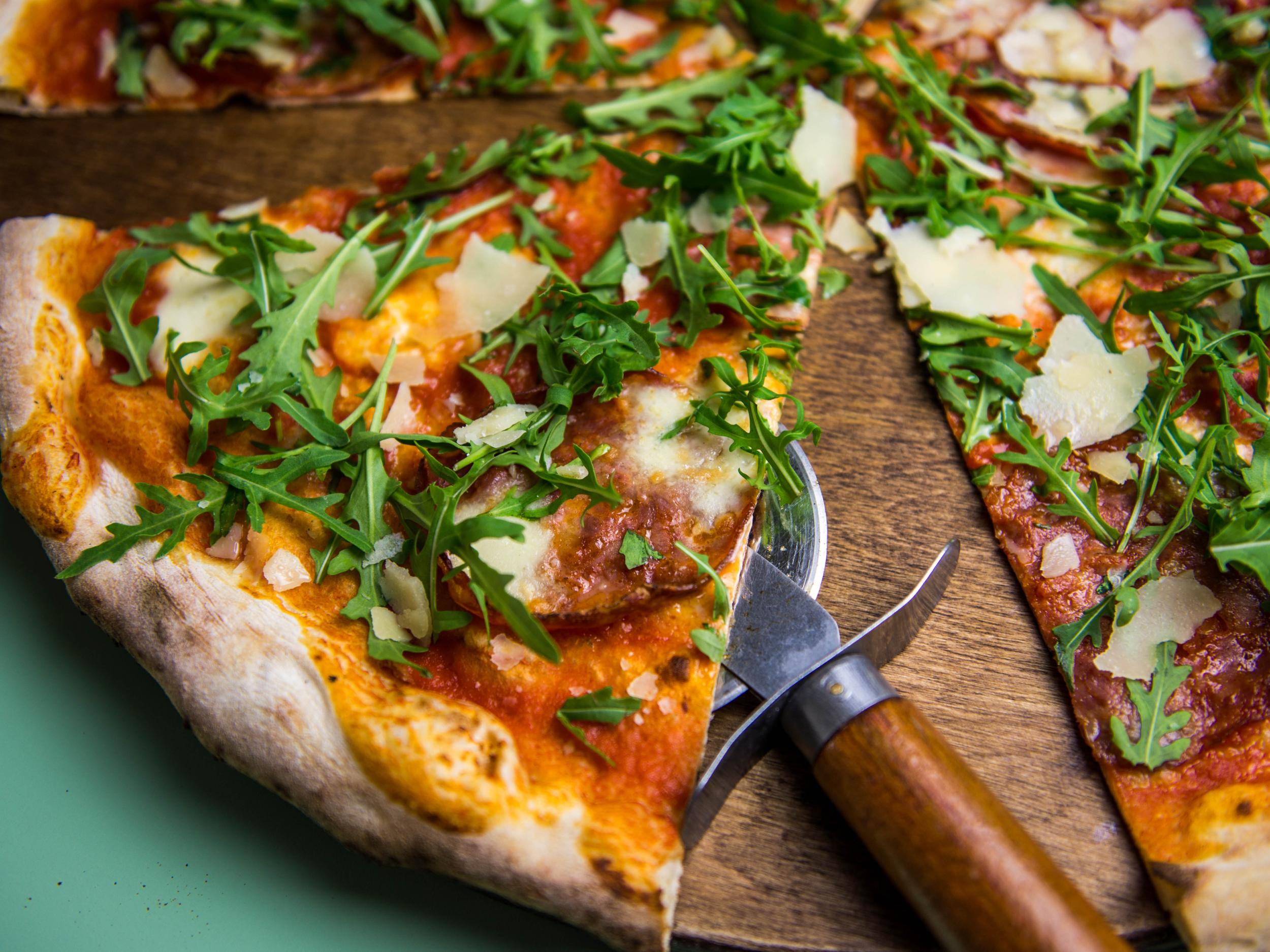‘It’s the togetherness we’ve missed’: Why we’re so eager to dine in restaurants again
Communal eating is fundamental to human nature and maintaining relationships through it has been millennia in the making. Clare Finney examines what the future of eating out may mean for diners and restaurateurs

Sharing food with another human being is an intimate act that should not be indulged in lightly,” observed the late American author MFK Fischer. It’s a quote favoured by food writers and fridge magnet creators alike – yet her words took on a particularly powerful and poignant resonance when I considered them in light of Covid-19.
As restaurants across the country ready themselves to reopen on 4 July, the act of welcoming guests and serving them food is one neither they nor their potential guests are considering lightly.
At the time of writing the two-metre rule is still under review; without reducing it to one metre most places simply can’t afford to open.
Yet even a separation of one metre will render many restaurants a shadow of their former selves, with counter seating and shared tables all but impossible.
Factor in face masks, tight turnaround times and hand san on the tables and it’s hard to see how restaurants can possibly provide the sort of convivial, shared experience of food and drink that, after months of isolation, we are so desperately craving.
Not that we’ve not eaten or drunk, of course: you don’t need another feature telling you just how much of that we’ve all done during lockdown. But it’s the togetherness of the act we’ve missed; that we’ve struggled to recreate over social media. Sure I had FaceWine – even Zoom-noodles at one point, but such attempts at digital dining and drinking invariably left me slightly drunk and dissatisfied, like a tomato soup served without cream.
People don’t visit restaurants because they are hungry. There is something about being in a restaurant that creates an energy and a togetherness
The same feeling pervaded when we dabbled in restaurant deliveries: the food was there, but there was something missing – and it wasn’t just someone to clear the plates away. “Having a restaurant-quality meal delivered – it’s like having the actors and the stage set for a theatre production but missing the director and the actual theatre,” observes Jeremy Chan, co-founder and head chef of Ikoyi, a Michelin-starred restaurant in London. “You are missing the ambience of the room.”
It is this that the chefs, maitre d’s and restaurant owners are grappling with as they draw up their survival strategies for the weeks and months ahead. Yes, restaurants feed people – but “people don’t visit restaurants because they are hungry”, Chan’s co-founder, Iré Hassan-Odukale, points out. “There is something about being in a restaurant, with other people and other guests, that creates an energy and a togetherness” – an energy that can neither be delivered in Tupperware nor conveyed via the medium of Zoom.

In recent years the function of restaurants and cafes has been more social than anything else – “and it’s taken a long time to to get to the point where that can be a regular part of civilised life for so many people”, says Jeremy Lee of Soho’s Quo Vadis. It’s easy to forget that up until the 1970s and 1980s eating out was a rare treat for the vast majority of the population. Only really in the 21st century have restaurants been democratised to the point where they are social arenas, in the same way that the pubs have historically been.
Yet while the democratisation of restaurants has been relatively recent, the social significance of sharing food has been millennia in the making. Anthropologists have long chewed over how and why humans eat together: one of their most compelling theories is the practice was heralded by our being able to kill animals far larger than our individual appetites could stomach: in short, a slain mammoth was the primitive precursor to the neighbourhood barbecue. Add in fire and, later, agricultural and preservation techniques, and you have an approach to food that is almost entirely centred around the communal living.
At the same time, running quietly alongside this and cementing the connection in our minds, was our dopamine system which responds as powerfully to a meal as it does to a loved one. “Somewhere along the way, our brains became wired to remember these food events and the people associated with them,” writes John Allen, a research scientist at Dornsife Cognitive Neuroscience Imaging Centre and the author of The Omnivorous Mind. “In our brains, at least, food really is connected to love and a sense of wellbeing.”
It is to this sense of wellbeing rather than the more cerebral sense of gastronomy that a restaurant must appeal if it is to be truly successful. Even Chan, with his Michelin star and his illustrious culinary credentials, knows that when it comes to eating out with your friends “it’s about service and environment first. Food is third tier.” When Alan Lorrimer, the veteran bars and restaurant entrepreneur behind the Piano Works, first ventured into hospitality, it wasn’t food and drink that drove him, but psychology. “I got into the business to make a difference to someone’s day – to make people feel better.” Several years ago he decided to formalise his interest with a psychotherapy course: “I loved the idea of using psychological models to understand people’s behaviours.” He talks to me animatedly about Maslow’s hierarchy of needs; how the creativity and complexity of a dish can only be appreciated if our more basic needs for love and belonging – and beyond that, safety and security – have been met already.

“The act of sharing food is a social experience, not an intellectual one,” Lorrimer continues. “We eat for all sorts of reasons – but we come together for the joy of being with others. That visceral joy doesn’t come across unless you’re operating on all the senses” – which is why shared meals felt somehow hollow through Zoom. It’s why, when Mark Wogan founded Homeslice with his brother Alan, he went for pizzas that could be shared and devoured by hand – “food just tastes better like that” – and communal tables as well as individual ones. “There is something about communal feasting,” Mark muses, recalling how at their restaurant in Neal’s Yard disparate groups of diners would be friends by the end of the night. It’s also why at The Palomar – a restaurant as renowned for its atmosphere as it is for its Israeli cuisine – head chef Omri McNabb likes diners to start the meal with “rip and dip” bread and a cocktail “to get things flowing”; and why he worries about losing the counter seats and separating out tables. “Palomar is all about sharing. Customers are always chatting to each other, recommending dishes to each other. It won’t be the same now – though I hope it will somehow continue.”

It’s why the restaurants need to create an environment that feels both physically safe and psychologically hospitable – a seemingly impossible task but then, it is also why they are trying. After all, if our attempts to recreate the experience of a shared meal over social media, Zoom and delivery boxes shows us anything, it is the extent of our need. “It was the togetherness of eating that people seemed to really miss during Covid,” says Dr Kaori O’Connor, a senior research fellow in anthropology at University College London.
What ‘hospitality’ actually means is to be generous and friendly – to show people you care
Observing the lockdown and people’s responses, O’Connor was fascinated by our determination to commune over eating and drinking. “The thing about eating together is that it creates and consolidates communities. It literally, physically connects us as humans.” And in providing a shared space in which we can eat and drink without worrying about the practical aspects of cooking and cleaning, restaurants are the ultimate realisation of community created through food.
So what happens come 4 July? Well, subject to certain conditions, restaurants will be allowed to open with measures in place to prevent the spread of infection.
Business leaders are campaigning for a relaxation of the two-metre rule to the WHO-recommended one metre, and Lorrimer is lobbying the government to grant local authorities permission to allow tables and chairs outside hospitality businesses, in order to extend the number of customers they can serve with safe distancing. Whether the public will be persuaded remains to be seen.
Restaurants will look and feel different, and there’s no question that that will affect the sense of togetherness, says O’Connor – but the Wogans’ hope is that, with time and patience, hospitality in the truest sense of the word will win out. “We talk about it as an industry. But what ‘hospitality’ actually means is to be generous and friendly – to show people you care,” he says, and safety and trust is as fundamental to that as food and service.
Lockdown showed us that the physical and social appetite for restaurants is there. “What will trigger them getting back on their feet will be removing the fear of conviviality; when people feel safe enough to be together again.”
Join our commenting forum
Join thought-provoking conversations, follow other Independent readers and see their replies
Comments